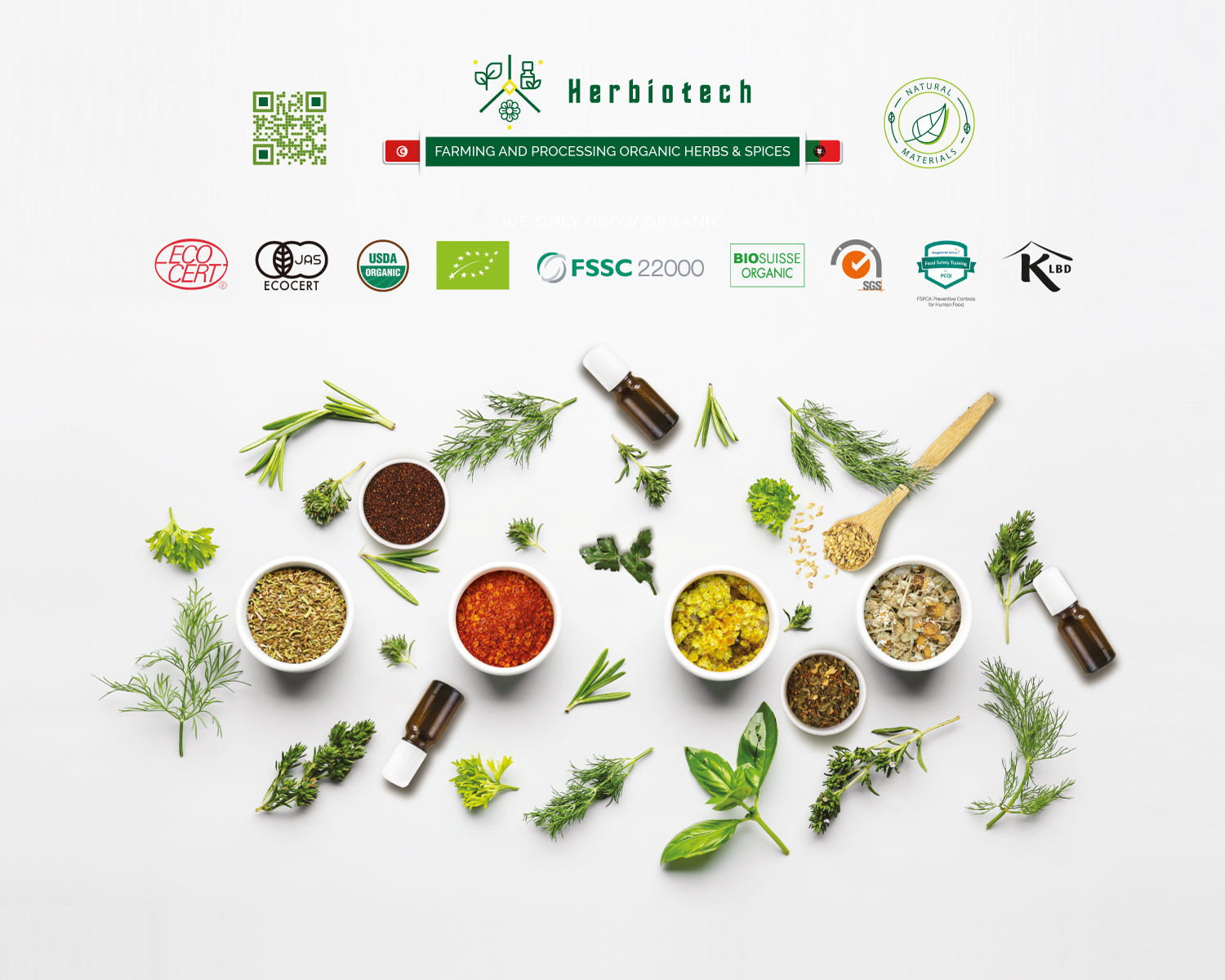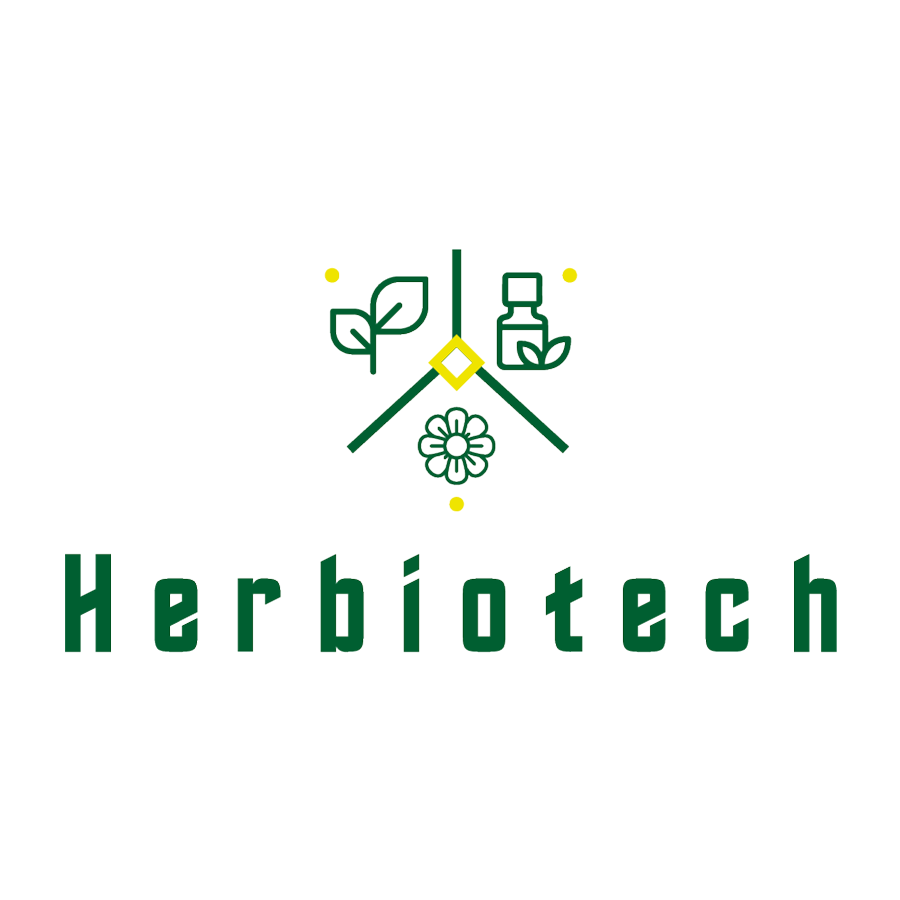

HERBIOTECH AROMA

1.6
Siliana Governorate, Tunisia
October 2025
Agricultural Processing
Agriculture/Growers
Portugal,
Tunisia
HERBIOTECH is a company dedicated to producing 100% organic herbs and spices. The company cultivates its own products in its own fields and processes them in a fully equipped facility that includes a continuous drying unit, chamber dryers, sieving, screening, separation, and packaging systems. This complete control over the production chain ensures full traceability from soil to the customer’s warehouse. HEERBIOTECH exports its products worldwide, including to Europe, the United States, and various Asian countries. Since 2023, the company has established a subsidiary in Portugal — HERBIOTECH Unipessoal — located in Castelo Branco. This branch is equipped with a processing unit and collaborates with local farmers to produce specific products that meet strict quality standards. HEERBIOTECH holds multiple certifications, including Organic EU/NOP, FSSC 22000, and Kosher. The company is also proud to have recently obtained B Corp certification, reflecting its strong commitment to sustainability, transparency, and social responsibility.
Overall B Impact Score
Governance 8.2
Governance evaluates a company's overall mission, engagement around its social/environmental impact, ethics, and transparency. This section also evaluates the ability of a company to protect their mission and formally consider stakeholders in decision making through their corporate structure (e.g. benefit corporation) or corporate governing documents.
What is this? A company with an Impact Business Model is intentionally designed to create a specific positive outcome for one of its stakeholders - such as workers, community, environment, or customers.
Workers 16.1
Workers evaluates a company’s contributions to its employees’ financial security, health & safety, wellness, career development, and engagement & satisfaction. In addition, this section recognizes business models designed to benefit workers, such as companies that are at least 40% owned by non-executive employees and those that have workforce development programs to support individuals with barriers to employment.
Community 18.2
Community evaluates a company’s engagement with and impact on the communities in which it operates, hires from, and sources from. Topics include diversity, equity & inclusion, economic impact, civic engagement, charitable giving, and supply chain management. In addition, this section recognizes business models that are designed to address specific community-oriented problems, such as poverty alleviation through fair trade sourcing or distribution via microenterprises, producer cooperative models, locally focused economic development, and formal charitable giving commitments.
Environment 40.8
Environment evaluates a company’s overall environmental management practices as well as its impact on the air, climate, water, land, and biodiversity. This includes the direct impact of a company’s operations and, when applicable its supply chain and distribution channels. This section also recognizes companies with environmentally innovative production processes and those that sell products or services that have a positive environmental impact. Some examples might include products and services that create renewable energy, reduce consumption or waste, conserve land or wildlife, provide less toxic alternatives to the market, or educate people about environmental problems.
What is this? A company with an Impact Business Model is intentionally designed to create a specific positive outcome for one of its stakeholders - such as workers, community, environment, or customers.
Customers 3.5
Customers evaluates a company’s stewardship of its customers through the quality of its products and services, ethical marketing, data privacy and security, and feedback channels. In addition, this section recognizes products or services that are designed to address a particular social problem for or through its customers, such as health or educational products, arts & media products, serving underserved customers/clients, and services that improve the social impact of other businesses or organizations.